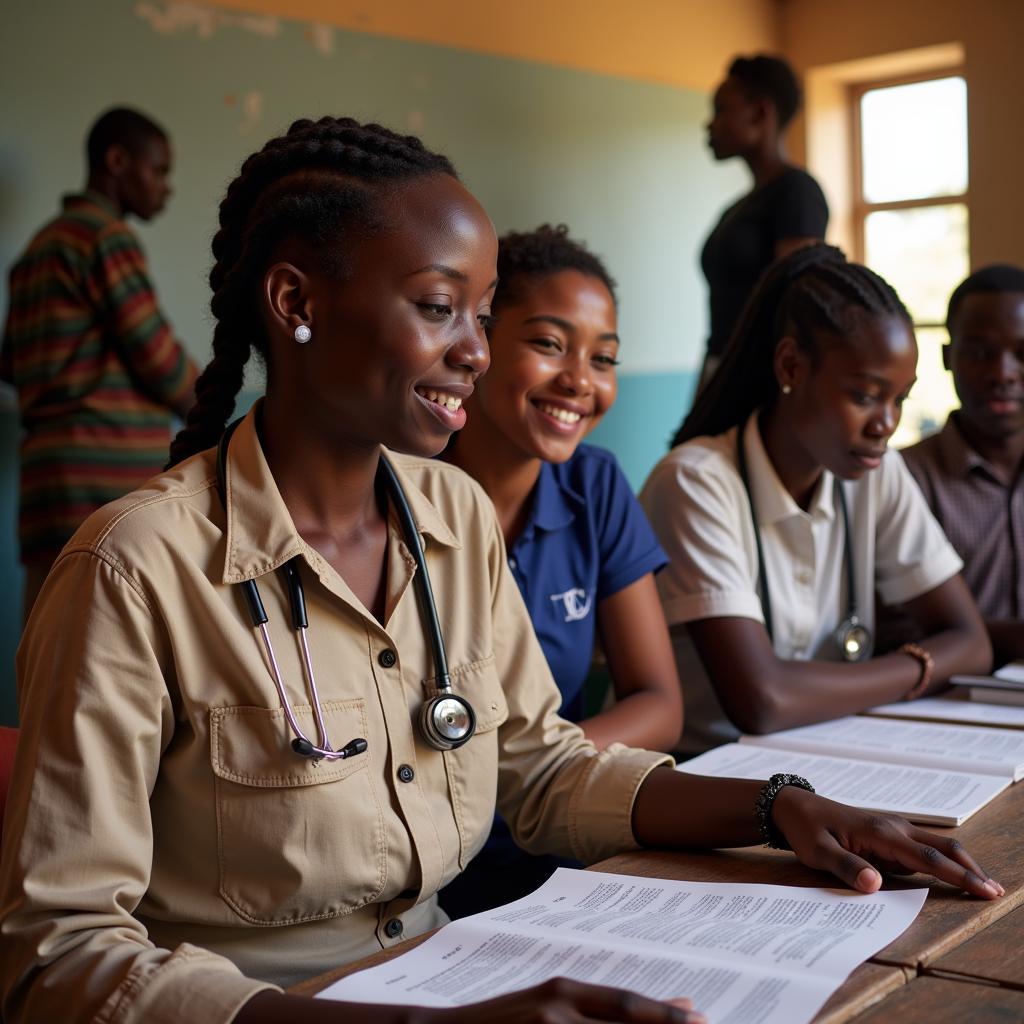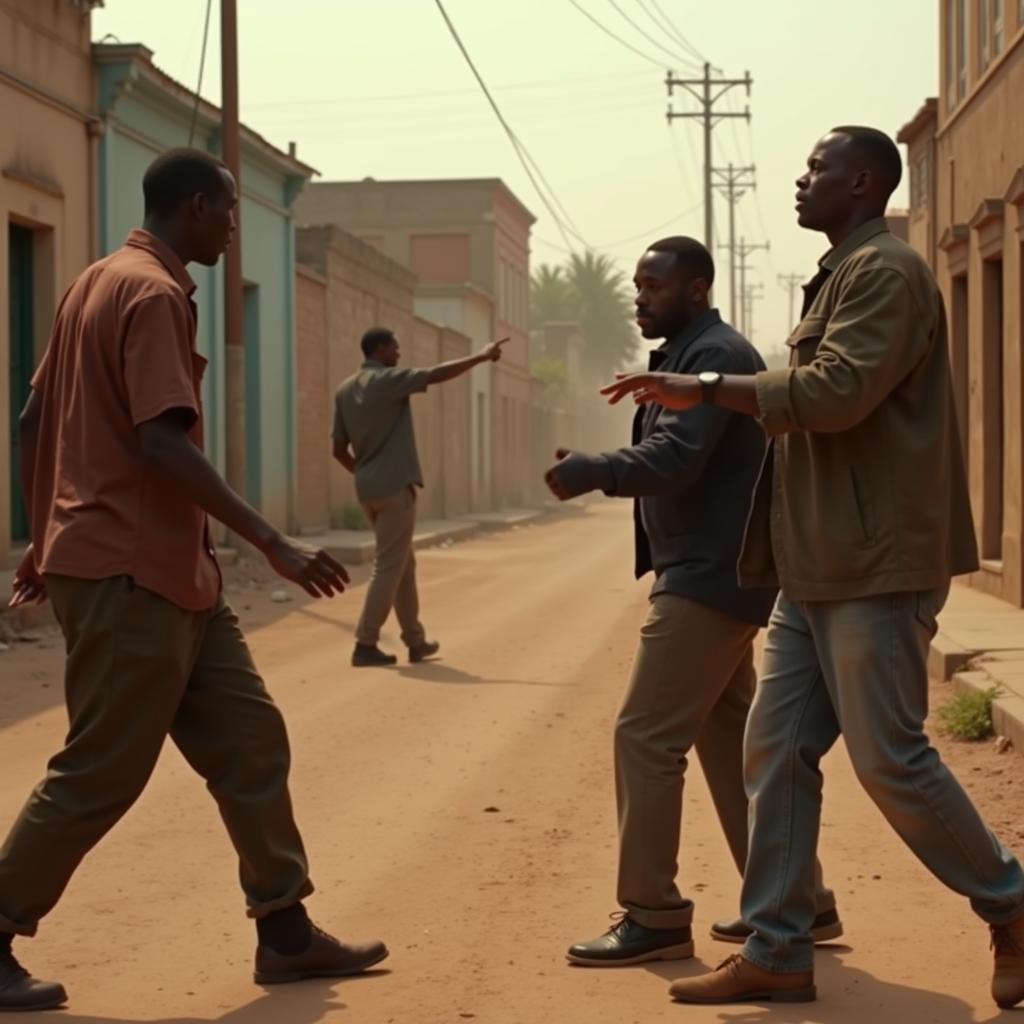Understanding Early Sexual Experiences in Africa: A Complex Issue
Early sexual experiences in Africa are a complex issue intertwined with cultural norms, socioeconomic factors, and access to education and healthcare. This multifaceted topic requires a nuanced understanding, moving beyond generalizations to address the specific realities faced by individuals and communities across the diverse continent.
Exploring the Factors Influencing Early Sexual Activity in Africa
Several factors contribute to early sexual experiences across the African continent. Poverty often forces young people into transactional sex for survival, while limited access to education can hinder their understanding of sexual health and reproductive rights. Cultural norms and traditions, varying widely across different regions and ethnic groups, also play a significant role in shaping attitudes and behaviors related to sex and relationships.
The Role of Culture and Tradition
Cultural practices, such as child marriage and initiation rites, can contribute to early sexual activity in certain communities. These traditions are deeply rooted in history and often carry significant social and symbolic meaning. However, they can also pose risks to the health and well-being of young people, particularly girls. Understanding these cultural contexts is crucial for developing effective interventions that respect local customs while promoting positive change.
Socioeconomic Factors and Their Impact
Poverty and economic hardship often create vulnerabilities that increase the risk of early sexual activity. In some cases, young people may engage in transactional sex to meet basic needs such as food, shelter, or school fees. The lack of economic opportunities can also limit their access to education and healthcare, further exacerbating their vulnerability.
Access to Education and Healthcare
Limited access to comprehensive sexuality education leaves many young people ill-equipped to make informed decisions about their sexual health. This lack of knowledge can lead to risky behaviors and increased vulnerability to sexually transmitted infections (STIs), including HIV, and unintended pregnancies. Furthermore, inadequate access to healthcare services can make it difficult for young people to receive the necessary support and care, particularly in cases of sexual violence or exploitation.
 African Youth Accessing Healthcare
African Youth Accessing Healthcare
Addressing the Challenges and Promoting Positive Change
Addressing the complex issue of early sexual experiences in Africa requires a multi-pronged approach that involves governments, communities, and individuals. Strengthening education systems, improving access to healthcare, and empowering young people with the knowledge and skills to make informed decisions about their sexual health are crucial steps.
Empowering Young People Through Education
Comprehensive sexuality education plays a vital role in equipping young people with the knowledge and skills they need to navigate the complexities of sexuality and relationships. These programs should address topics such as consent, contraception, STI prevention, and healthy relationships, while also taking into account cultural sensitivities and local contexts.
Strengthening Healthcare Systems
Improving access to quality healthcare services is essential for ensuring that young people can receive the necessary care and support related to their sexual and reproductive health. This includes providing access to contraception, STI testing and treatment, and comprehensive care for survivors of sexual violence.
 Community Support for African Youth
Community Support for African Youth
Engaging Communities in Dialogue
Open and honest dialogue within communities is crucial for addressing cultural norms and traditions that may contribute to early sexual activity. Engaging community leaders, parents, and young people in these conversations can help promote positive change and create a supportive environment for young people to make healthy choices.
Conclusion
Early sexual experiences in Africa are a multifaceted issue with far-reaching consequences. By addressing the underlying factors that contribute to this complex problem and empowering young people with knowledge and resources, we can create a healthier and more equitable future for all. Continued efforts are needed to strengthen education and healthcare systems, engage communities in dialogue, and promote positive social change.
FAQs
- What are some of the cultural factors that influence early sexual activity in Africa?
- How does poverty contribute to the issue of early sexual experiences?
- What is the role of education in addressing this challenge?
- What are some of the health risks associated with early sexual activity?
- How can communities be engaged in promoting positive change?
- What are some of the existing programs and initiatives that address this issue?
- How can international organizations support efforts to address this challenge?
Need further assistance?
Contact us for support: Phone: +255768904061, Email: [email protected] or visit our office at Mbarali DC Mawindi, Kangaga, Tanzania. We have a 24/7 customer service team.

